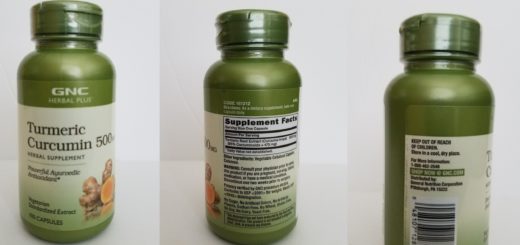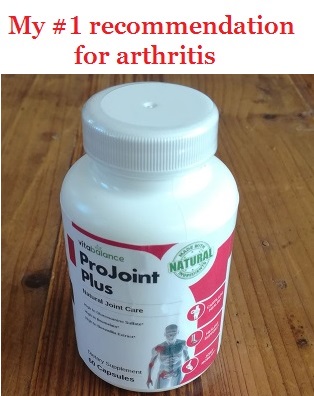Can Dehydration Cause Joint Pain? 3 Possible Causes
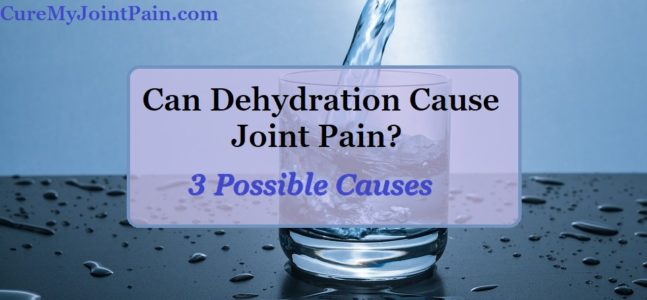
You surely know that water is essential at any age, that’s why experts recommend us to drink eight 8-ounce glasses per day. But is water really that important? I’m talking about the joints.
So does water have anything to do with joints and cartilages? In case you drank very little water, would that affect your joints? Can dehydration cause joint pain itself? Or can it at least worsen it?
I’ve been really interested in this topic for a little while, because I couldn’t find a clear answer anywhere. So does the lack water have to do with the joints? I decided to analyze all aspects I could find in this article.
So if you want a clear answer, let’s try to find it out.
Yes, Dehydration Can Produce Joint Pain
It may sound hard to believe, but there is a strong link between these 2. In fact, dehydration is one of the best hidden cause of arthritis and joint pain.
 The Simplest Explanation: Well, joints, cartilages and ligaments are all made of water in a high percent. Once your body gets dehydrated, it will start to use the water that is stored inside. And obviously, the joints and the tissues around will be the first ones affected.
The Simplest Explanation: Well, joints, cartilages and ligaments are all made of water in a high percent. Once your body gets dehydrated, it will start to use the water that is stored inside. And obviously, the joints and the tissues around will be the first ones affected.
Let’s say you’re out in a very hot day and you forgot your water at home. Assuming you don’t have where to buy one, you will probably start to get dehydrated slowly. At first, you would only feel very thirsty, but after a while, some more symptoms can come up.
Your joints could also start hurting, but you can’t always tell it’s them. In most cases, you can only feel the pain and not know what’s causing it.
So in a situation like this, dehydration could make your joints painful, but it will be only on the short term. If you drink plenty of water when you get home, your pain (and all the other symptoms) should go away in a few hours.
However, in other cases, your body can be deprived of water for a longer time, without even knowing it. In this situation, your pain won’t go away after a few hours.
But What Is Dehydrating Me?
You may be drinking 10 glasses of water per day. How can you be dehydrated then?
Well, sometimes it’s only your joints that don’t have enough water. So you don’t always have to feel thirsty and tired. Your joints can suffer from the lack of water and you might not be aware of it.
How’s that?
In some cases, your body can be dehydrated because of other factors. They may be causing your pain, not arthritis or any other joint condition. So let me show you the most common 3 causes, because one of them could be your situation.
1. Aging
As they grow older, people are more likely to get arthritis and joint problems. But do you know why? The explanation is very logical.
 The joints have a thick liquid surrounding them, that keeps them nourished and lubricated. It’s called “synovial fluid“, in case you heard of it. That liquid is made of water in the highest percent, but there’s also glycosaminoglycans and sulfur compounds.
The joints have a thick liquid surrounding them, that keeps them nourished and lubricated. It’s called “synovial fluid“, in case you heard of it. That liquid is made of water in the highest percent, but there’s also glycosaminoglycans and sulfur compounds.
Well, as you age, your body doesn’t have the necessary substances to create that liquid anymore. Your body’s cells are getting drier, so they can’t keep water as they did before. So the quantity of liquid around the joints will decrease with time.
Once there’s no protection and lubrication, damage starts to come up.
You won’t notice anything straightaway, but after a while, your joints will start to get stiffer and more painful. It will all happen gradually, but it will happen at one point.
So that doesn’t mean you have arthritis. You could have, but it’s not a must. Your joints could simply be dehydrated, but your body won’t give you any clear sign. You won’t feel thirsty or tired, you would only feel the pain.
But unfortunately, you could think there’s something else causing the pain, so you would be skipping this minor cause – dehydration. For this reason, keep in mind that your joints could be simply dehydrated, not necessarily damaged. Drinking more water would help, but it will take a while until your pain starts to decrease.
2. Coffee & Soda
Most of the beverages you consume are actually doing more harm to your joints than good. How’s that?
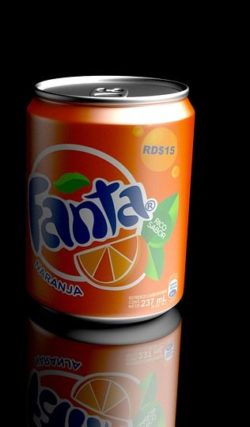
Well, coffee, soda, alcohol and even tea are diuretics. This means they eliminate the water from the tissues of your body.
Now, don’t imagine that having a glass of Coke will cause you joint pain. And it’s the same for soda or alcohol. But if you consume more Coke than water, your joints will surely not like it on the long term. As your body eliminates the additional water, it will also take some of the water from and around your joints.
If you read the previous paragraph, you know that the lubrication fluid around the joints is made mainly of water. Well, as some of that water is eliminated, how well do you think it could keep the joints nourished? Not too well, believe me.
For this reason, try to give up this kind of beverages. If you like tea, you can continue to use it, but make sure it’s not from a diuretic herb. You shouldn’t have any trouble finding a non-diuretic one, there are many.
When it comes to coffee, you can continue to use it, because it doesn’t cause joint pain itself. But try not to drink more than 1-2 cups per day, because a higher quantity would increase the quantity of water that is eliminated.
What I recommend you to give up is alcohol and soda, because they both dehydrate your body a lot more, even in smaller quantities.
3. Medicines
Just like beverages, certain medicines you’re taking also promote water elimination. But unlike beverages, they’re created for this purpose.
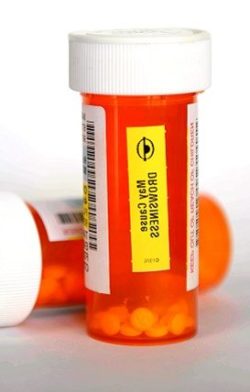
The most common example are the drugs that control blood pressure. You surely heard about “water pills”, didn’t you? Well, they are made to eliminate additional water and in this way, lower the blood pressure.
Obviously, they’re only prescribed for people with heart problems, but what if you also have joint problems besides? What if your joints are already dehydrated because of age? Diuretics are actually some of the most used medicines for high blood pressure. So is there anything to do about it?
Well, if you already have joint pain and you think it’s because dehydration, there’s no point drinking more water. If you’re taking these pills, all the extra water will be eliminated, so there’s really no point.
All you can do is talk to your doctor and tell him about your pain. He could change your treatment for blood pressure, and in this case, drinking more water could be a solution on the long term.
But it may not be dehydration behind your joint pain, so all you can do is try to have more water and see if anything changes. If it does, good for you. But if it doesn’t, there’s probably another cause behind, not dehydration.
So What’s The Solution?
The lack of water can produce joint pain, that’s for sure. But the problem is that it’s really hard to know if it’s dehydration or anything else behind your pain.
So what you can do is to add more water to your diet, if you’re consuming a small quantity at this point. Try to drink more water for at least 1-2 weeks. If your pain starts to decrease and if your joints feel less stiff, the lack of water could have been causing the pain.
But if nothing changes, you’re probably hydrated enough and it’s not the lack of water causing your joint pain.
I personally don’t know too many people that had any pain caused by dehydration. But it doesn’t mean it’s impossible. In theory, it’s quite possible. And after all, you’re not losing anything trying it out.
If you can, try to drink the recommended dose of water – eight 8-ounces glasses. If not, try a smaller quantity and then increase it over time. Who knows, it could make a difference for your joint pain.


